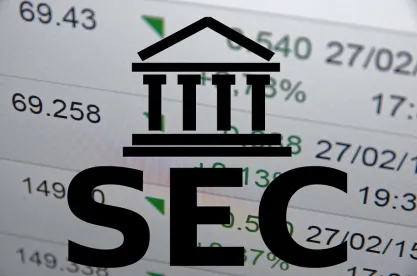The U.S. Securities and Exchange Commission (SEC) recently charged two Maryland companies and their executives in a scheme that allegedly defrauded approximately 1,200 investors of more than $27 million. The SEC alleges the defendants told investors their funds would be used by a team of skilled and licensed traders of cryptocurrency and foreign exchange trading, and promised risk-free returns between 6% and 42%. The defendants promised to return each investor’s principal after 12 months. One of the defendants allegedly claimed to be a pastor and held himself out as a self-made millionaire and expert trader, rented office space to conduct in-person meetings and give the appearance of a legitimate company.
The SEC claimed the defendants (i) sold investment contracts and limited partnership interests that were securities within the meaning of the Securities Act of 1933 and the Securities Exchange Act of 1934; and (ii) that they sold the securities to hundreds of individual members of the public, including those individuals who pooled their money specifically to purchase the securities. The defendants targeted African immigrants and exploited their common ancestry and religious affiliations. Many of the investors were health care workers and/or members of churches attended by some of the defendants.
Rather than invest money received as promised, the defendants misappropriated investor funds for personal use and, like the infamous Charles Ponzi, used the funds to keep the scheme afloat by making Ponzi payments to earlier investors. The scheme collapsed when the defendants lacked sufficient funds to make promised payments to investors and one of the defendants fled to his native South Africa. The SEC charges include claims the defendants violated Section 17(a) of the Securities Act and Section 10(b) of the Exchange Act and Rule 10b-5 thereunder. The SEC also seeks the disgorgement of ill-gotten funds.
In announcing the action, the SEC encouraged investors to review previously published Investor Alerts on affinity fraud, ‘Have Something in Common with Someone Selling an Investment? It May Make You a Target for Fraud’ and ‘Avoiding Investment Fraud in Your Faith-Based Community.’ The SEC also encouraged investors to learn more about Ponzi scheme red flags.
The promise of blockchain technology and digital assets has been marred by a ceaseless parade of fraudsters presenting themselves as “experts” in the trading of digital assets. Like Charles Ponzi and Bernie Madoff, these fraudsters often use affinity schemes that exploit their ties to a community to facilitate the commission of their nefarious schemes.
To foster the widespread implementation of blockchain technology, the FinTech industry, and particularly legal professionals, should follow the suggestion of SEC Chairman Clayton in his testimony to Congress on virtual currencies and the roles of the SEC and the CFTC, on the need for industry leaders to focus on their responsibilities as gatekeepers to insure that public investors are protected from illegal offerings of securities.







 />i
/>i

